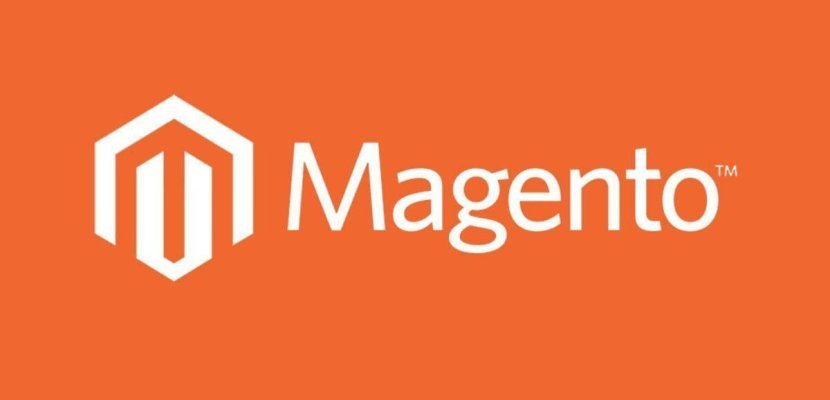A CMS (Content Management System) is a content management system that allows users to create, edit, manage and publish digital content on websites without the need for in-depth technical knowledge.
WordPress

WordPress is not just a CMS, but a revolution in web development with about 40% of all websites running on it. Let's take a look at the main reasons for its popularity.
- Free and affordable: WordPress is distributed for free, making it accessible to everyone from bloggers to large companies.
- Ease of installation: it only takes a few minutes to install. Most hosting providers offer one-click installation, which simplifies the process.
- Huge number of plugins: with over 55,000 plugins, WordPress allows you to expand your site's functionality - from feedback forms to SEO management. Both free and paid solutions are available.
- Templates and Themes: WordPress offers thousands of ready-made templates, which speeds up development and reduces design costs. Themes range from minimalistic to complex.
- User-friendly interface: an intuitive interface makes it easy to edit pages and manage content, making the platform ideal for beginners.
- Adaptive layout: default adaptive themes ensure that the site displays correctly on all devices, from cell phones to monitors.
- SEO-oriented: WordPress is initially created with SEO in mind, supports plugins for optimization, which increases the chances of high positions in search engine rankings.
- Wide support of hosting providers: Almost all providers support WordPress, which makes it easier to find a suitable tariff and install the platform.
The main problem is update compatibility. When using multiple plugins, updating one can cause glitches. This requires care on the part of the site owner.
Shopify

Shopify is a modern content management system (CMS) launched in 2006 and serves about one million online stores worldwide. The platform attracts users with its convenience, versatility and a number of key benefits for online business owners.
Shopify benefits
Ease of interaction with PayPal
The ease of interaction with PayPal and other payment systems makes Shopify attractive for e-commerce, allowing users to make purchases quickly and securely.
User-friendly user interface
With a clean and uncluttered interface, even beginners can quickly learn the main features and start creating online stores.
No transaction fees
Shopify does not charge transaction fees, allowing store owners to keep more profits, which is especially important for small and medium-sized businesses.
Weighty range of available templates
The platform offers enough free and paid adaptive templates that can be customized to meet the needs of the business.
Solid optimization tools
Shopify provides search engine optimization tools, including meta tags and redirects setup, which helps improve search engine visibility.
24/7 support
Users can expect expert support at any time of the day or night, which is important for resolving issues.
Unlimited number of products
There are no limits on adding products on all plans, allowing you to expand your catalogs without restrictions.
Shopify disadvantages
Despite the advantages, Shopify has disadvantages. Chief among them is the high cost of using the platform, which can be an obstacle for startups and small businesses. In addition, the quality of free templates can be inferior to paid options, requiring additional investment in unique design.
Joomla

Joomla is a powerful CMS that has a number of advantages and disadvantages. Let's take a closer look at them.
Joomla Advantages
- Rich ecosystem of extensions: Joomla offers a huge library of components and modules, which allows you to significantly extend the standard functionality. This makes the platform suitable for creating sites of any complexity - from simple blogs to large online stores.
- Saving resources: Joomla has small requirements for server resources, which makes it an ideal choice for running as one large site, and many small projects. This is especially true for owners of hosting companies and web studios working with limited resources.
- Russification: The system and most of its modules have Russian-language versions, which makes it accessible to users from Russian-speaking countries. This greatly simplifies the process of working with CMS for those who do not speak English
- Regular updates: Joomla is actively updated, and each new update is thoroughly tested. This ensures the security and stability of the system, as well as the introduction of new features.
Disadvantages of Joomla
- Lack of an official support team: one of the major disadvantages is the lack of an official support team. This can be a problem for users who need help with specific issues. However, the user community is active in sharing experiences and solving problems through forums and blogs
- Insufficient development of some elements: some elements of the system may be insufficiently developed, which can cause difficulties in use. However, this can be compensated for with the help of additional modules and extensions developed by third-party developers.
Drupal
Drupal is a robust and scalable CMS, ideal for large websites and portals with high traffic, such as news aggregators and corporate websites.
Drupal advantages
- Security and stability: open source code provides constant updates and high protection from vulnerabilities. Built-in caching mechanisms help manage resources efficiently.
- flexibility and extensibility: a huge number of modules and themes allows you to customize functionality for any needs, which makes Drupal ideal for unique projects.
- SEO optimization: built-in tools for customizing meta tags, sitemaps and URL management.
- Multilingual support: easy adaptation for multilingual content.
Drupal disadvantages
- Difficulty of mastering: requires a deep understanding of the system and considerable time to learn, which can be an obstacle for beginners.
- need for skilled professionals: site support usually requires experienced developers, which increases costs.
Magento

Magento is the leading commercial platform for creating online stores, offering a wide range of features to optimize business processes.
Magento advantages
- Extensive functionality for e-commerce: tools for product management, order processing, marketing and integration with payment systems. Built-in analytics helps to track key metrics.
- Qualitatively made interface: more than understandable administrative panel and convenient personal cabinet for users
- SEO-optimization: built-in tools to improve store ranking and search engine visibility
- multi-lingual and multi-currency support: Possibility to do business internationally
- Mobile adaptability: adaptive design for ease of use from any device.
Magento disadvantages
- high cost: commercial platform requires license, deployment and support costs.
- complexity of customization: setting up complex features may require special skills.
- Western commerce orientation: some features may be more oriented to the Western market.
Using a CMS greatly simplifies the process of creating and managing websites, allowing you to focus on content and its quality.